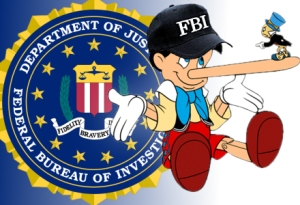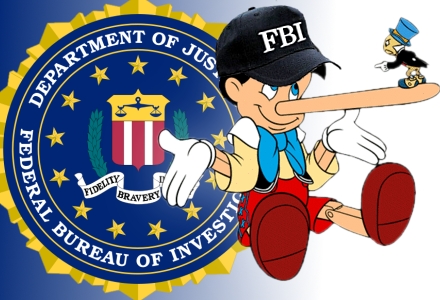 The war of intimidation from the federal Department of Justice (DoJ) against Internet gambling has now reached the Federal Bureau of Investigation.
The war of intimidation from the federal Department of Justice (DoJ) against Internet gambling has now reached the Federal Bureau of Investigation.
This is no minor issue.
I have taught classes to the FBI, including on both Internet and Indian gaming. I have always found them to be professionals. They appreciate both their power and responsibility as the leading law enforcement agents of the federal government.
So, I was shocked to see this on the official FBI website:
“If you’ve ever thought about visiting a cyber casino, here’s something you should know: it’s illegal to gamble online in the United States…
That means:
-
• No placing cyber bets on sporting events or in virtual card games;
-
• No transferring money electronically for gambling; and
-
• No wagers in offshore Internet casinos even if you live in the U.S.”
The page is called “Online Gambling: Don’t Roll the Dice.”
And it’s completely untrue.
A quick lesson in the law: always read the actual language of the statutes. So, when the FBI lists what it says “are the primary federal laws that govern online gambling,” click on the links. What you will find are the following:
“Transmission of wagering, betting by use of a wire communication” takes you to the Wire Act. The statute’s opening words: “Whoever being engaged in the business of betting or wagering…” Since the law was enacted 50 years ago, there have been only one or two attempts to charge players under the Wire Act. The charges were thrown out. Courts have ruled the Act means exactly what it says: If you are not in the business of gambling, you cannot be violating this law.
The other statutes listed by the FBI even more clearly never apply to mere bettors. In fact, “Broadcasting lottery information,” doesn’t even directly apply to gambling operators. It is limited to TV and radio broadcasters. There is no way this law could be used against someone who is merely making bets using the Internet.
Incidentally, courts have held that sports books do not violate this and other federal anti-lottery laws. “Lottery,” under federal law, is limited to games that are 100% chance. Betting on sports events requires at least a little bit of skill.
But at least a lottery is gambling. The last two statutes the FBI lists, “Fraud by wire” and “Mail fraud: Attempt and Conspiracy,” only apply to schemes to defraud. Even if the gambling is illegal, it does not mean it is crooked, or that the operator lied.
And you can’t prosecute a mere bettor by throwing in “Conspiracy.” If that were allowed, everyone who bought illegal drugs would be guilty of conspiracy to sell drugs.
How did this happen? Why would the FBI put up information that is 100% incorrect?
Under J. Edgar Hoover, the FBI was a political force. Although Hoover made the Bureau, as Wikipedia puts it, “a large and efficient crime-fighting agency,” he also used it as a personal weapon to intimidate Presidents and Congress. Hoover was appointed director of the predecessor Bureau of Investigation in 1924. He helped found the FBI and ran it from its birth 1935 until his death in 1972.
Naturally, nobody wanted a repeat. So the FBI was reined in, put heavily under the control of the Attorney General and the Department of Justice.
The result, sadly, is this professional law enforcement agency has become a tool of the Department’s war of intimidation against Internet gambling.
© 2011, I. Nelson Rose. Prof. Rose is recognized as one of the world’s leading experts on gambling law, and is a consultant and expert witness for governments, industry and players. His latest books, Internet Gaming Law (1st and 2nd editions), Blackjack and the Law and Gaming Law: Cases and Materials, are available through his website, GamblingAndTheLaw.com.






